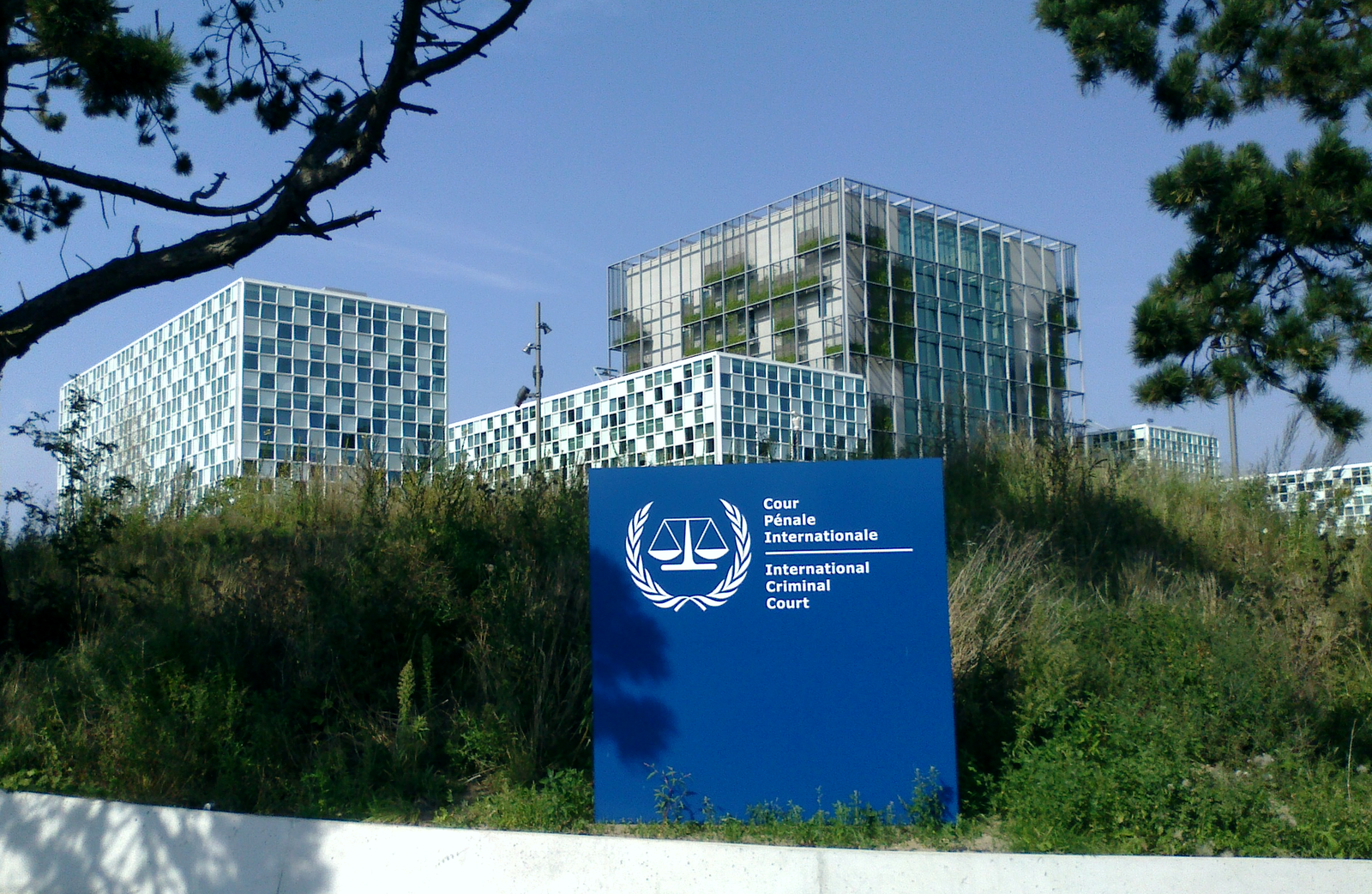France’s Gravely Mistaken View on Immunity at the International Criminal Court

Published by The Lawfare Institute
in Cooperation With

After the International Criminal Court’s (ICC’s) Pre-Trial Chamber announced arrest warrants against Israeli Prime Minister Benjamin Netanyahu and his former defense minister, Yoav Gallant, on Nov. 21, France’s Foreign Ministry made an announcement of its own.
France initially indicated it would fulfill its obligations under the Rome Statute, but on Nov. 27, less than a week after the ICC issued the warrants, the ministry made an apparent volte-face and issued a statement claiming that leaders of states that are not party to the Rome Statute are imbued with immunity before the court.
The announcement from Paris must, of course, mean in their view that the ICC may not prosecute Myanmar’s leader Min Aung Hlaing, whose arrest warrant the ICC prosecutor has also requested for international crimes allegedly committed against the Rohingya. And it must mean that the ICC may not prosecute Russia’s President Vladimir Putin and at least five other Russians in leadership positions against whom the ICC has issued arrest warrants for international crimes they allegedly committed in Ukraine.
What is more, the French government announcement must also mean this: Should Putin decide to invade any other European state after Ukraine—that being the visceral fear of many Europeans—neither the ICC nor any other court outside Russia may prosecute Russian leaders as the Nuremberg Tribunal did leaders of Germany at the end of World War II.
It must be acknowledged that the political knee-jerk reaction from Paris to stroke an ally is not the first time we’ve heard that kind of messaging—even from political leaders of Western nations who would support the arrest warrant against Putin, whose state is, like Israel, not a party to the Rome Statute. We’ve also heard it from Brazil in favor of Russian leaders, even as Brazil has unequivocally backed calls for accountability of Israeli leaders for the apparent excesses of their conduct in Gaza. In fairness to these politicians, it is not entirely unusual to hear that sort of argument in the mouths of some lawyers and legal academics.
That view is fundamentally mistaken.
The Scope of International Law—Customary International Law and Treaties
For present purposes, I shall not engage the discussion of whether international law has ever recognized immunity for global leaders who are alleged to have committed international crimes, when those individuals are under investigation or prosecution before an international court. Suffice it to say, for now, that international law has never recognized such immunity before an international court. That story is fully told in accessible language—not legalese—in my new book, “End of Immunity: Holding World Leaders Accountable for Aggression, Genocide, Crimes against Humanity and War Crimes.” The book notably tells the story of the determined insistence in 1919 of French Premier Georges Clemenceau—firmly backed by British Prime Minister David Lloyd George—to foster international law reform to the effect that any head of state or head of government accused of international crimes must be personally held responsible and prosecuted at the bar of international law—whether or not their state is a party to the international treaty that created the international court mandated to try the individual.
The suggestion that an international criminal court may not exercise jurisdiction over a national of a state that is not party to the treaty that established the court is a faulty view based on an inchoate understanding of international law by those who see no scope for it beyond treaties. But the scope of international law is broader than treaties. That broader scope is the very matter of the aspect of international law known as customary international law. It describes the rules that result from how states customarily conducted themselves in their international relations, in the belief that they are following legal guidelines. Customary international law rules have an existence that is independent of treaties. In other words, they transcend treaties.
It is obviously correct to see a treaty for what it says in black and white. But sometimes a treaty, in its various parts, also ends up capturing the essence or content of customary international law that predated the treaty. In such instances, the customary norm in question retains its own binding force upon nations—and may be operationalized through the instrumentality of the treaty—whether or not the target of action based on the treaty (a state or the national of a state) is itself a party to that treaty.
The Right of States to Exact Punishment
One ancient rule of customary international law, clearly identifiable since time immemorial, entails the right of states to exact punishment or impose sanctions on those who violate the legal norms that seek to protect and preserve the individual members of the community of nations and the community itself. One can trace that customary norm of international law to the Roman Empire, when fetial priests decided the circumstances under which it was right for Rome to launch a war against people and states outside the empire—pursuant to the rituals of ius fetiales.
The Roman historian Titus Livius, better known in English as Livy, wrote about fetial rituals as a prelude to war, as did Cicero, who also sufficiently advertised the right of states to punish other states for violation of understood norms of ius gentium (the name for international law during the Roman Empire). Cicero did so in “De Officiis” (written in 44 BCE),allowing states to engage in punitive wars against other states that oppress innocent citizens of foreign nations.
In the medieval era, St. Augustine and later St. Thomas famously updated Cicero’s doctrine of just war. In the Augustinian-Thomist doctrine of just war, one immediately sees the right of states to punish transgressions in the second of the three conditions of a just war, which held that there must be “some fault” on the part of the state being proceeded against. The notion is evident in Aquinas’s elaboration of the second condition of just war, in which he quotes Augustine as follows: “‘Just wars are normally defined as wars that avenge injuries, where the nation or city to be punished is one that has either neglected to make amends for what was done unjustly by its subjects or refused to restore what was lost through injury’” (emphasis added).
During the Renaissance, the famous scholastics of Spain’s Salamanca University, notably Francisco de Vitoria and Francisco Suárez, updated the doctrine of the right of states to punish transgressions against the law of nations. Famous jurists of that era and later, notably Alberico Gentili, Hugo Grotius, Balthazar Ayala and Emer de Vattel, also restated that right. So, too, did eminent legal scholars of the 19th and 20th centuries—such as William Edward Hall, T.J. Lawrence, Lassa Oppenheim, Robert Phillimore, Ellery Stowell, Henry Wheaton, Theodore Woolsey, and so on—in their scholarship in support of the right of states to engage in humanitarian intervention.
Hans Kelsen, whom Harvard Law Dean Roscoe Pound described as “unquestionably the leading jurist of the time” in 1934, wrote amply on the subject of the right of states to punish those who transgress the legal norms intended to preserve the international order. When states engage in that punishment, Kelsen wrote, they do so on behalf of the international community.
These eminent jurists of old were thus united in the view that the right to exact punishment against individuals or states that transgress the legal norms that protect the community of nations can be exerted by states able to do so individually; but states can also combine their efforts and resources to do so. In his “Law of Nations,” Vattel notably expressed the proposition in terms of a duty of mutual assistance.
The right to exact punishment never depended on the treaty-based consent of the state that is accused of the violation (or whose nationals are) that triggered the impetus of punishment.
Punishment Through Methods Other Than War
From the Roman Empire to the Renaissance and later, the usual manner of such punishment was warfare. Even today, such use of force remains a method of counteraction against a state that has attacked a NATO member state. And it could never be the case that legality of NATO action depended on the consent of the state facing such action.
But even in earlier millennia, as Suárez made clear, the right of states to punish violations of preserval international legal norms did not automatically entail war. War became necessary only if, as St. Augustine had explained, the nation against whom the just war might be waged had “either neglected to make amends for what was done unjustly by its subjects or refused to restore what was lost through injury.” Even in that explanation, just war was a method of last resort when methods of justice short of war had come to naught.
At the end of World War II, the processes of the Nuremberg and the Tokyo tribunals gave the world definite models of using judicial mechanisms to exact punishment against those who violate the preserval norms of international law. The processes of those two tribunals were entirely consistent with the doctrine traceable to the time of the Romans, which marked out the right of states to punish violations of preserval norms of international law. The ICC is the progeny of the Nuremberg and Tokyo tribunals.
The ICC can exercise jurisdiction over the nationals of Israel and Russia precisely on the same valid basis in international law that the Nuremberg and the Tokyo tribunals had exercised jurisdiction over nationals of Germany and Japan at the end of World War II—notwithstanding that Germany and Japan were not parties to the instruments that created those tribunals.
The government of France is mistaken to suggest otherwise.



.jpg?sfvrsn=564b5f50_5)

